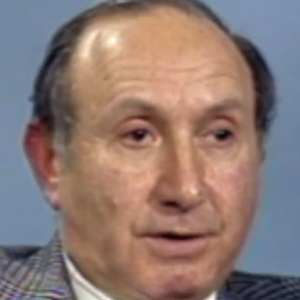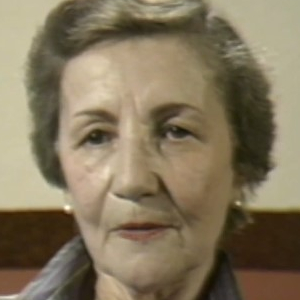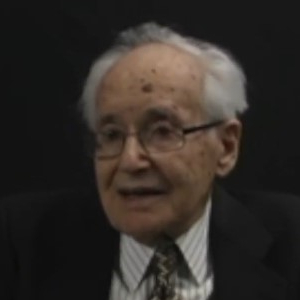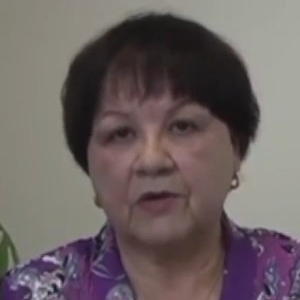Klara Forrai
Klara describes the procedures surrounding a secret birth at Auschwitz-Birkenau. She remembers the baby being delivered in secret, taken from the mother, and being hidden under her bunk bed as it got weaker and died.
Klara Forrai was born April 1, 1928 in Gönc, Hungary. Gönc is in Northern Hungary, very close to what was then the Czechoslovakian border. She was the middle child of her middle-class parents. Klara remembers her community as being generally peaceful and having a very active and accepted Jewish community of about 150 people. She did not notice any antisemitism in Gönc, and often went on excursions in the surrounding mountains with her non-Jewish friends.
In 1938 Klara was living in Budapest with her aunt to attend school. By 1940 her parents feared she would be attacked, and did not want her to live in Budapest anymore, so she returned to Gönc. By 1944 Klara and her family were experiencing restrictions that were placed on Jewish people. They were not allowed to go to the public pools, ice rinks, tennis courts, or take public transportation. Early in the morning of April 16 1944, Hungarian soldiers knocked on the Forrai’s door and pointed guns at their heads. They were told they had 30 minutes to collect their things and leave their home. The next morning they were put on cattle cars and taken to a ghetto in Košice, Czechoslovakia (now Slovakia). When they arrived in Košice, they were taken to a brick factory where they stayed until May 26, 1944 when they were put on a train to got to Auschwitz- Birkenau.
Upon arrival at Auschwitz, Klara was immediately separated from her father and younger brother. She was also separated from her mother and older sister on the first day. Klara was in Auschwitz- Birkenau for 4 months until she was chosen by German industrialists to be taken to Weisswasser for slave labor. She worked in a factory making small glass bulbs until February 1945. Klara was then transported to Horneburg followed by Bergen-Belsen, where she stayed until liberation on April 4, 1945.
After being treated in hospital for six weeks, Klara stayed at Bergen-Belsen after it had been changed into a displaced persons camp until August 1946 where she worked as a German interpreter. When she realized she was the only survivor of her family, she returned to Hungary. She had to use her salary from interpreting to pay for someone to smuggle her into the country. As Hungary became a communist country, Klara found herself outcast again because she was the daughter of a successful businessman.
After having their only daughter in 1955, Klara and her husband decided to leave Hungary. When they put their applications through at the Canadian embassy in Vienna, they were accepted right away because her husband was a lawyer and had a doctorate in law. In 1956 they chose to settle in Vancouver, and in the early 1980s Klara joined the Vancouver Holocaust Centre Society and started to share her story.
Klara Forrai died in 2001, and her full testimony is part of the Canadian Collection of Holocaust survivor testimonies. It is preserved in the USC Shoah Foundation’s Visual History Archive and accessible through the Ekstein Library.
Klara ForraiAfter 38 years I have nightmares… I always see this little thing in a brown paper and hear the voice of a newborn whimpering… I still hear it.
Testimony to discover
-
Camp

Martin Baranek
Martin describes the conditions he endured at Mauthausen. He remembers beatings and not being fed.
Listen -
Camp

Miriam Spinak
Miriam describes her work sorting through items that were taken from recently arrived prisoners. She recalls finding a baby in a suitcase and many pra...
Listen -
Liberation

Paul Bard
Paul recalls when he was liberated. He describes his reaction seeing the American soldiers and how he felt in the moment.
Listen -
Escape

Regina Halpern
Regina describes her flight to Italy with her mother and brother. She distinctly remembers the conditions of the ship and what happened to her family ...
Listen
Educators & Students
Educational guides
Check resources